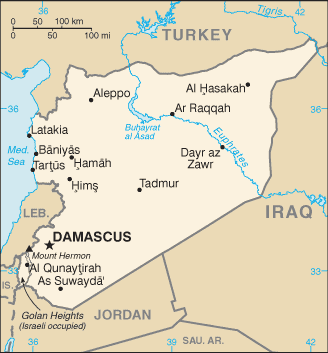As always happens with a change in administrations, President Trump is seeking a series of new options from the Pentagon for how to change America’s strategy in the ISIS war, with an eye toward outright eradicating ISIS worldwide.
 The Pentagon options, unsurprisingly, are centered on significant escalation of US involvement, particularly with the idea of sending more US ground troops into Syria to fight directly, with one plan involving a whole battalion of US troops being deployed around Raqqa.
The Pentagon options, unsurprisingly, are centered on significant escalation of US involvement, particularly with the idea of sending more US ground troops into Syria to fight directly, with one plan involving a whole battalion of US troops being deployed around Raqqa.
This is in keeping with when the Pentagon started offering “plans” to President Obama in 2009 regarding the Afghan occupation, with the plans exclusively centering on huge new deployments. In 2009 the Pentagon was so obsessed with giving bellicose options that there was a major argument among the top Joint Chiefs of Staff figures, with some seeking to withhold the least aggressive of the plans.
The ISIS plans are said to focus on troops, and also loosening restrictions on airstrikes , along with allowing ground troops more freedom of operation. On top of that, the plans also seek an increase in US military aid to the Kurdish YPG in Syria, and to add a number of Apache attack helicopters to the country. US support for the Kurds has been hugely controversial with neighboring Turkey, and Trump has been said to be averse to centering the US strategy on aid.
Trump’s transition team had previously suggested he wanted to eliminate CIA arms smuggling for Syrian rebels. It’s not clear if this restriction would also include Pentagon-provided aid to the Kurds, but any increase is likely to spark another backlash from Turkey.
While Trump has expressed an opposition to fighting big ground wars, he did mention during the primary debates that he was open to sending 20,000-30,000 ground troops to fight ISIS, envisioning it as a way to quickly “knock out” ISIS. It’s unclear if any of the options being finalized are anywhere near that much in a single go, with a lot of the ISIS war efforts involving a few hundred new troops at a time being sent in discrete deployments with no real debate.


